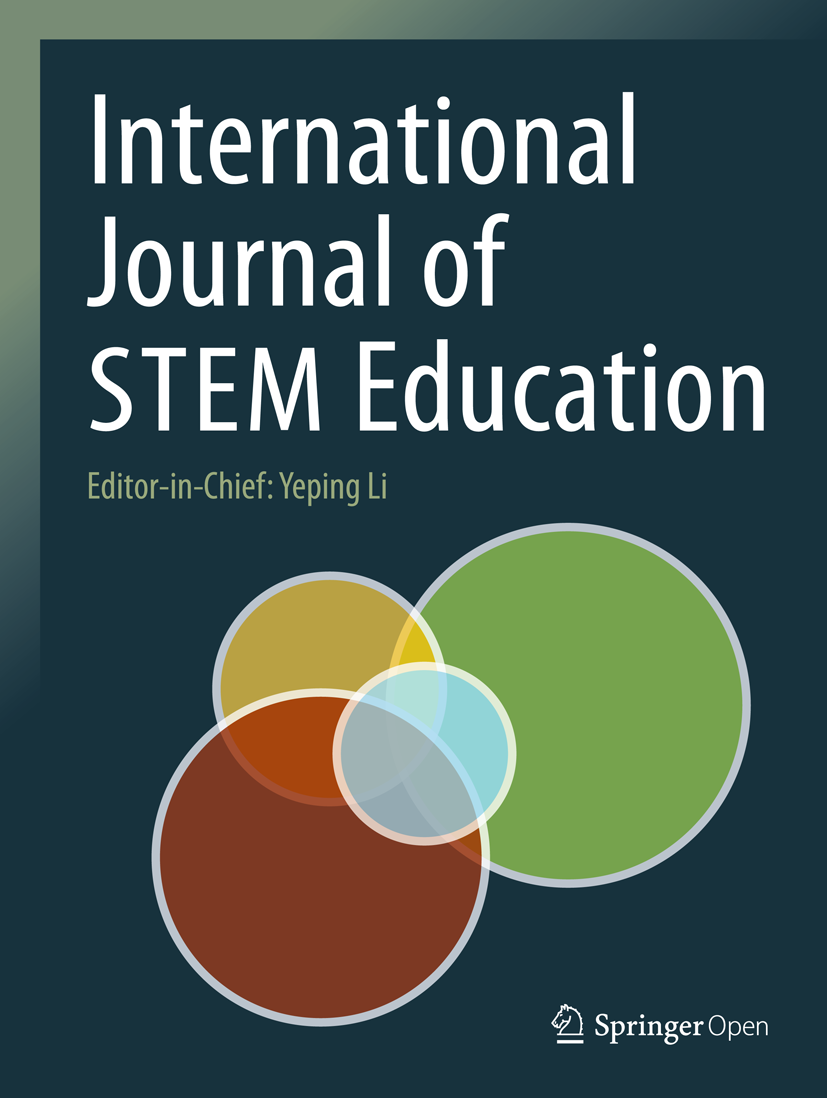A meta-analysis of interdisciplinary teaching abilities among elementary and secondary school STEM teachers
IF 8
1区 教育学
Q1 EDUCATION & EDUCATIONAL RESEARCH
引用次数: 0
Abstract
In the context of global educational reform, science, technology, engineering, and math (STEM) education, as an interdisciplinary educational model, has become increasingly central to foundational pedagogical reforms. However, research on the impact and development of STEM teachers’ interdisciplinary teaching abilities is relatively limited. This meta-analysis explored STEM education’s impact on elementary and secondary school teachers’ interdisciplinary teaching abilities. The review encompassed 21 empirical studies published between 2010 and 2023 and aimed to quantify the effect size of STEM interventions on teachers’ interdisciplinary abilities. A moderately positive correlation (r = 0.452) was found between STEM education and teachers’ interdisciplinary teaching abilities. The role of potential moderating variables, including demographic traits, gender, academic qualifications, subject specialization, pedagogical tenure, and prior exposure to interdisciplinary learning, was scrutinized. The findings highlighted a substantial improvement in teachers’ interdisciplinary teaching abilities through STEM education, emphasizing the critical role of knowledge integration. STEM programs significantly aided educators in bridging and amalgamating diverse disciplinary insights. Variations in the efficacy of STEM education across different educational tiers, subject domains, levels of teaching seniority, and interdisciplinary familiarity were identified, indicating that the benefits of STEM training were contingent upon individual teacher profiles. Notably, gender disparities in the enhancement of interdisciplinary teaching abilities through STEM education were not observed. Despite the methodological diversity of the included studies, which encompassed various research paradigms, sampling strategies, and evaluation instruments, the integration of findings across these diverse methodologies added intricacy to the interpretation of the meta-analytic results. The study’s potential limitations, such as the risk of sample selection bias and the use of potentially imprecise assessment tools, were acknowledged as possibly having influenced the meta-analytic outcomes. The findings had two implications. First, they provided a roadmap for the strategic design and execution of STEM initiatives aimed at fostering excellence in interdisciplinary teaching. Second, they highlighted the imperative for tailored approaches to the development of STEM teachers, which recognize the heterogeneous needs and potential based on their unique professional and experiential backgrounds.中小学 STEM 教师跨学科教学能力的元分析
在全球教育改革的背景下,科学、技术、工程和数学(STEM)教育作为一种跨学科的教育模式,日益成为基础教学改革的核心。然而,有关 STEM 教师跨学科教学能力的影响和发展的研究却相对有限。本荟萃分析探讨了 STEM 教育对中小学教师跨学科教学能力的影响。综述涵盖了 2010 年至 2023 年间发表的 21 项实证研究,旨在量化 STEM 干预措施对教师跨学科能力的影响大小。研究发现,STEM 教育与教师的跨学科教学能力之间存在中度正相关(r = 0.452)。研究还仔细研究了潜在调节变量的作用,包括人口统计学特征、性别、学历、学科专业、教学任期和先前跨学科学习的经历。研究结果表明,通过 STEM 教育,教师的跨学科教学能力得到了大幅提高,并强调了知识整合的关键作用。STEM 课程极大地帮助了教育工作者沟通和融合不同学科的见解。不同教育层级、不同学科领域、不同教龄和跨学科熟悉程度的教师在 STEM 教育的效果上存在差异,这表明 STEM 培训的益处取决于教师的个人情况。值得注意的是,在通过 STEM 教育提高跨学科教学能力方面,没有发现性别差异。尽管纳入研究的方法多种多样,包括各种研究范式、抽样策略和评估工具,但这些不同方法的研究结果的整合为元分析结果的解释增添了复杂性。研究的潜在局限性,如样本选择偏差的风险和使用可能不精确的评估工具,被认为可能影响了荟萃分析的结果。研究结果有两方面的意义。首先,它们为旨在促进卓越跨学科教学的 STEM 计划的战略设计和执行提供了路线图。其次,它们强调了必须采取量身定制的方法来培养科学、技术和工程学教师,这些方法应认识到基于教师独特的专业和经验背景的不同需求和潜力。
本文章由计算机程序翻译,如有差异,请以英文原文为准。
求助全文
约1分钟内获得全文
求助全文
来源期刊

International Journal of Stem Education
Social Sciences-Education
CiteScore
12.40
自引率
11.90%
发文量
68
审稿时长
13 weeks
期刊介绍:
The International Journal of STEM Education is a multidisciplinary journal in subject-content education that focuses on the study of teaching and learning in science, technology, engineering, and mathematics (STEM). It is being established as a brand new, forward looking journal in the field of education. As a peer-reviewed journal, it is positioned to promote research and educational development in the rapidly evolving field of STEM education around the world.
 求助内容:
求助内容: 应助结果提醒方式:
应助结果提醒方式:


